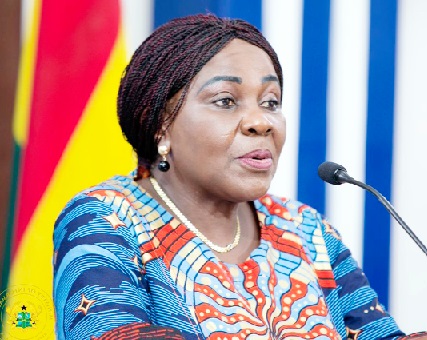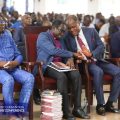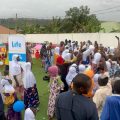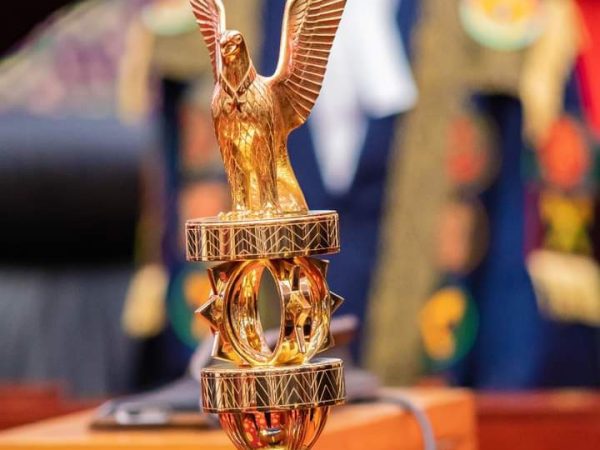Water Crisis in Saboba needs Govt Drastic Measures to Resolve- says MP
The Member of Parliament for Saboba in the Northern Region, Hon Joseph Nikpe Bukari has called on government through the Ministry of Sanitation and Water Resources to take drastic measures to resolve the water supply crisis that continue to haunt residents in communities in the constituency.
According to him, more than 30,000 residents in the constituency, which was also home to farming communities, relied on rivers and streams especially during the dry season to access water which in itself scarcity.
He said the government must focus on and expedite the construction of Dams in addition to boreholes to reduce if not end the water shortage situation in the Saboba constituency.
“I urge the Ministry of Sanitation and Water Resources to take steps to increase supply of drinking water for my people. Water is important and is the biggest problem facing my people. When you come to my area, apart from bad roads and inadequate health and education infrastructure, water is very key and residents compite with animals in rivers and streams in search of water,” the MP lamented.

Hon Joseph Bukari revealed this to EXPRESSNEWSGHANA, after he posed a question to the Minister for Sanitation and Water Resources in Parliament on Wednesday March 29, 2023.
He wanted to know when the Ministry would supply potable drinking water to about seven communities that are currently without access to water.
“Mr Speaker, I rise to ask the Minister for Sanitation and Water Resources when the following communities will be provided with potable drinking water: (i) Bileegnando (ii) Inabuni (iii) Inagmabuni (iv) Binangam (v) Liyalbu (vi) Wadul (vii) Yonkozio (viii) Shiegheni,” Hon Joseph Buari quizzed the sector Minister.
In response, the Minister for Sanitation and Water Resources, Hon Cecilia Abena Dapaah said water supply in communities are partly resolved but the lack of funds has resulted in the delay of expansion of the water projects to ensure every community in the Constituency have access to drinking water.
According to her, the water situation in Bileegmando community is fully served, albeit with one functional borehole as the other borehole needs rehabilitation to ensure sustainability of water supply
She told parliament, the Inabuni community has two functional boreholes and the community is fully served, but the Inagmabuni has one functional borehole and therefore an additional borehole is required to fully meet the 300 persons per borehole standard.

Touching on the Binangam community, the Minister said the community has one functional borehole and the community is fully served, while the Liyalbu community on the other hand has two boreholes but currently one is functional.
“The other borehole, Mr Speaker needs rehabilitation to fully meet the 300 persons per borehole standard.
“The Wadul Community also has two boreholes but currently one is functional and the other borehole must be rehabilitated to fully meet the 30persons per borehole standard. Yankazia has have six boreholes but the area has a difficult hydro-geological formation.
“One of the boreholes, however, has appreciable yield which borehole requires mechanization to provide higher service level. The estimated cost of the borehole mechanization is GHS250, 000.00,” Hon Cecilia Dapaah explained.
For the Shegbeni community, the Minister said has a functional borehole, but an additional borehole is required to fully meet the 300 persons per borehole standard, but assured that, the Ministry through the Community Water and Sanitation Agency (CWSA) is looking for funding support to improve the provision of additional water supply in the communities.

In further answers to the MP supplementary question as to if the Ministry could consider constructing Dams as the best alternative to ensure all year round supply of water, the Minister responded in the affirmative and added that the Ministry also consider other option including underground water drilling.
Nevertheless, Hon Joseph Bukari said he would continue to lobby the government to get drinking water for his people.
He said he had personally drilled boreholes for some of the communities and someplace, it hit hard ground without water and expressed the hope the government would work to provide dams to serve as collection points for water to services the people during the dry season.
The population of Saboba District, according to the 2021 Population and Housing Census, is over 79,706 representing 3.8 percent of the Northern region’s total population.
The proportion for rural is about 95.8 percent higher than that of urban of about 35.6 percent. The four main sources of water in the district are borehole, river stream, public tap and pipe borne water and more than half of households 52.1 percent drink water from boreholes.
The Saboba District is bounded by River Oti, an international boundary for Ghana and the Republic of Togo and the Tatali District to the East, Chereponi District to the North, Gushiegu and Karaga Districts to the West, Yendi to the South-West, and Zabzugu to the South.
The District is one of the eastern corridor districts of northern Ghana with bad condition road network and inadequate supply of electricity, water and poor education facilities.

Source: expressnewsghana.com
Send your news stories and articles to expressnewsgh@gmail.com or via WhatsApp +233 0543 900 732







